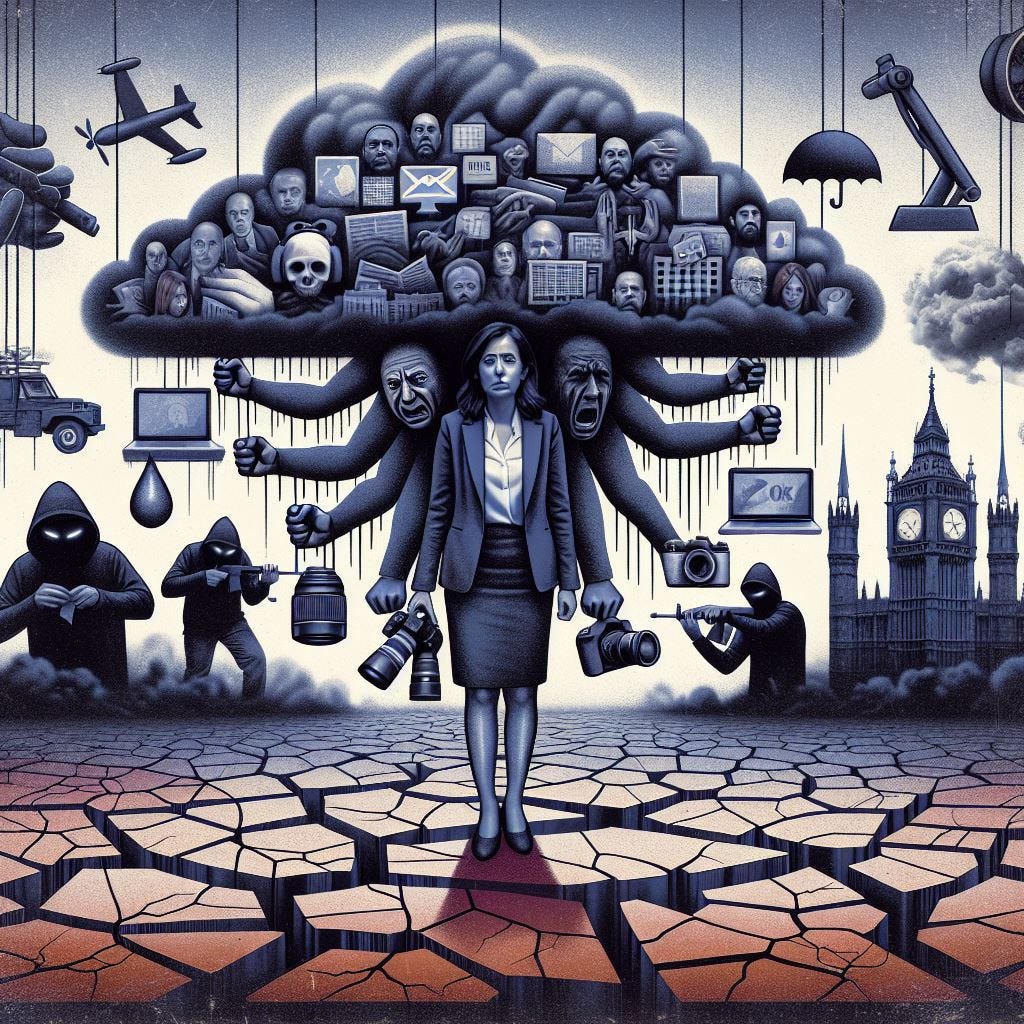From AI to Diversity - The Realities of Journalism Today
In a rapidly evolving world, how do journalists feel about their work today?
Journalism is more than a job, it is a commitment to give voice to the stories that matter, whether standing in the rain for a soundbite or entering conflict zones to uncover the truth. Journalists are trusted with the powerful responsibility of using their skills wisely. But, in a rapidly evolving world, how do journalists feel about their work today?
The Journalism at Work (JaW) 2024 Report produced by the National Council for the Training of Journalists (NCTJ) offers crucial insights into the current state of the profession. Launched on 26th September 2024 at Reuters in London, the report drew industry leaders together to explore emerging trends, challenges and opportunities.
Education
The report shows that qualifications are highly valued within the industry, with 81% of journalists holding a journalism qualification and 83% accredited by the NCTJ. An impressive 84% believe this was essential for securing their first job, while 90% say the practical skills gained whilst studying are still relevant to their work today.
This suggests that a strong educational foundation remains vital for entering and thriving in journalism.
Digital Shift
The opportunities arising from traditional paper print to digital continue to reshape the landscape. In 2024, 58% of journalists create content primarily for online publication, a significant leap from just 36% in 2012. This shift has required journalists to adopt new skills in media analytics, video editing and increasingly, Artificial Intelligence (AI).
Mark Spilsbury, Author of JaW, highlighted that although a minority of journalists currently use AI, 65% of those surveyed see both opportunities and threats in its development. As Damian Shepherd from Bloomberg noted, “Articles need human elements and it can’t be reproduced by AI”. Meanwhile, Mirek Gosney of Newbury News acknowledged AI’s potential to save time on tasks like transcribing, allowing him to focus more on the creative process.
Diversity and Inclusion
One of the most pressing issues highlighted in the report is the slow progress on diversity. The UK journalism industry remains overwhelmingly white (91%) compared to the UK workforce, which is 85% white (ONS Labour Force Survey 2023). While there have been improvements in the representation of sexual orientation – journalists identifying as LGBTQ+ are more represented than in the general population – other areas such as ethnicity and socio-economic mobility show limited progress.
During the panel, Sue Brooks, the new Chair of NCTJ, called for radical action to address these imbalances. Why is progress so slow and what can be done to accelerate it? There are grant funds available for students from various sources and whilst work experience is often unpaid, travel is usually paid. The NCTJ will continue collaborating with employers to reduce the obstacles for new journalists.

The report reveals that journalists with disabilities are often paid less and more likely to work as freelancers, a sector that generally earns considerably less than those in salaried positions.
“Our lives are defined by barriers that are placed in our way, not by our disabilities”
Baroness Jane Campbell, Disability Rights Campaigner & Member of the House of Lords.

The Remote Work Debate
Remote work has become the new norm for many with 89% of journalists now working from home at least some of the time, with 38% primarily working from home. This flexibility has been embraced, especially for work-life balance but it has raised concerns about isolation and missed opportunities for younger journalists to learn in a newsroom environment.
“50% of journalists say remote work makes their profession more attractive”
BBC World Service Journalist and Panel Member, Emaan Warraich, shared how we benefit from “Learning by Osmosis” in the newsroom – a practice that is harder to replicate remotely.
“44% report feelings of isolation working from home”
Wellbeing and Safety
One of the most troubling findings is the rise in abuse, harassment and violence faced by journalists. Over half (51%) reported experiencing some form of abuse, either in person or online, with serious implications for mental health and safety. The panel discussed the challenges of dealing with online threats and the toll taken on personal wellbeing.
Despite employer’s efforts, more effective regulations and support systems are required to support journalists. This is highlighted by a notable decline in trust in regulatory bodies, dropping from 55% confidence in 2018 to just 42% in 2024. This drop raises questions about restoring confidence in the systems meant to protect journalists and the integrity of their work.
Sue Brooks Key Takeaways
Keep newsrooms open – We learn from each other.
Grit with heart – We need to build resilience while understanding our own and each other’s wellbeing.
AI has no soul – the human touch is essential in storytelling.
The future of journalism
The JaW 2024 report paints a complex picture of UK journalism. While the profession remains resilient – 63% of respondents would recommend the profession to young people. There are significant challenges to address including diversity, digital transformation and workplace wellbeing. As the industry adapts, the role of charities like the NCTJ in keeping training relevant will be crucial.
This report is a reminder that journalism is a constantly evolving profession and understanding these trends is key to helping shape its future.













